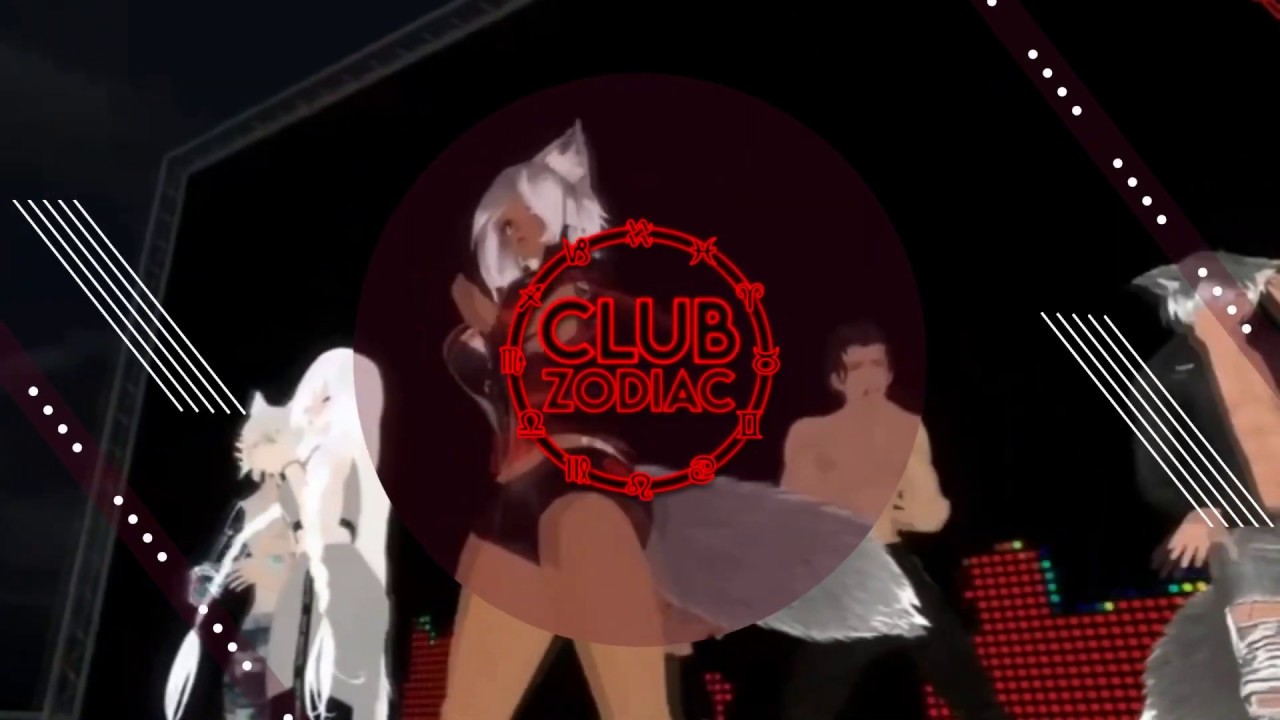In the Franz Schubert’s song cycle The Fair Maid of the Mill based on poems by Wilhelm Müller there is one that was constantly played in the curator’s head while compiling the film program (she even heard it in her dream) — Das Wandern («Wandering»; B♭ major). Its heroes are a miller and the millstones and millwheels that follow the example of water, which changes everything and glorifies movement. Films regardless of timing and genre are moving images and a hymn to the change. Therefore, in the Fantasia Training program, we propose, in contrast to the classic static viewing, chosen in advance in the box office or in the app, — the path of radical openness to all films in order as one of the ways of viewing experience, especially significant for Krasnodar residents who could not get to cinemas during the year.
A spontaneous visit to the cinema at 5 a.m., a test of the maximum possible viewing time and a chaotic floating around the exhibition hall with a visit to the screening room and back are just some of the ways to explore the viewing experience that you can try in 24 hours of this cinema attraction.
An important part of the program will be a performance by KP Transmission (Karina Kazaryan), whose musical performance will complement two silent German films, Serpentine (1895) and Different from the Others (1919). Her hazy and grainy compositions sound gloomy and chthonic, they have a feeling of uneasiness, a vague, unclear atmosphere.
The contextual leitmotif of the program moves in second and sometimes octave intervals between the sensation of the other/diverse/outside/variegated, which can be expressed in the form of exile, both to another country and to the virtual world; or directly in the form of a collision with the world of the deep sea; or through the experience of facing death.
The heroes of the films are scientists and giant animals, a business consultant and a retired inventor, an infant and the Second World War, Russian aristocrats whom the 20th century meets in Malmkrog (the German name for the Transylvanian village of Malankraw) and musicians who roam the aristocratic country estate in Ireland and grandiose bourgeois mansion in Marseille — both are now (in 2021) open to the public as museums, sea lovers, bored children, German workers on the border with Greece and Bulgaria and young rappers in the heart of Altai, homosexuals and blackmailers, butterfly-women and super-masculine shamans, Donna Haraway, the founder of cyberfeminism and Ayn Rand, ideologist of neoliberalism, a resident a tour guide of Berlin and representatives of the Seminole tribe who fight with alligators in front of tourists, Siberia as a designation of something distant and Transnistria, a separatist republic on a narrow plot of land bordering Ukraine, mutating, fixing, but not solidifying forms of people are not opposed, but form multiple connections, enter into dialogues, which, we hope, will happen between the audience.
The film program will be held in the amphitheater of the Typography CCA


ORGANIZERS:


Program
Die Serpentintanzerin
A young woman dancer with large, flowing robes, swirls round herself quickly, making her light robe flow around her like a butterfly’s wings. This film, which opens the program, is fleeting and exciting like any screening, and the main character chooses an inhuman embodiment, mimicking a delightful insect, whose life is just as short.
Max Skladanowsky was born on April 30, 1863 in Berlin, Germany. He was a director and producer, known for Liebigs Fleischextrakt (1897), Die Serpentintanzerin (1895) and Kamarinskaja (1895). He invented the Bioskop apparatus for filming and projection films, with which the brothers carried out commercial film screenings, approximately two months ahead of the sessions of the Lumiere Brothers’ Cinematograph.

Director Max Skladanovsky
Germany, 1895
1 min
Start: 21:00
KP Transmission (Karina Kazaryan) will perform at the opening of the film program. Two silent German films Serpentine (1895) and Different from the Others (1919) will be accompanied by live avant-garde electronic music performed by Karina. Karina works in experimental electronic styles and employs a unique unconventional aesthetic both in her tracks. Her hazy and grainy compositions sounds murky and chthonic, containing a vague feeling of uneasiness, blurry, obscure atmosphere.
keep that dream burning
Rainer Kohlberger´s eight-minute film keep that dream burning begins with extremely fine black-and-white particles that flutter across the screen. Coagulating into rough structures, they transform into a storm of jagged artifacts and steadily changing spots of light. With the introduction of the flicker effect, the floating electronic sound turns into a piercing rhythmic wafting and comes to rest towards the end — to the image of a black hole subtly growing deeper and deeper. Concrete object and events continually materialize from the active particles: dispersing debris, fireballs, and smoke barely evoke images of explosions familiar from action films, before…
Rainer Kohlberger is an Austrian artist based in Berlin who makes experimental films, video art and gallery installations. He combines algorithmically generated animations with live performance and often addresses the theme of human perception and spectator subjectivity.
Райнер Кольбергер — австрийский художник из Берлина, снимающий экспериментальные фильмы, видеоарт и галерейные инсталляции. Он сочетает алгоритмически сгенерированные анимации с живыми выступлениями и часто обращается к теме человеческого восприятия и субъективности зрителя.

Director Rainer Kohlberger
Austria, Germany, 2017
8 min
Start: 21:01
Different from the Others
Thought to have been lost for decades, German filmmaker Richard Oswald‘s 1919 picture Different From the Others was eventually discovered to have survived the Nazi era. The films stars Conrad Veidt of Casablanca and centers on the oppression brought upon Germany’s homosexual men as a result of the penal code’s controversial Paragraph 175. The silent film also stars Leo Connard and Ilse Von Tasso-Lind.
Richard Oswald is an Austrian producer, director, screenwriter. At first he was interested in an acting career, which brought him to the stage of the Vienna theaters. Oswald’s directorial debut took place in 1914, when he was 34 years old in the movie Das Eiserne Kreuz. In 1916, Oswald opened a private film studio in Germany, where almost all films were directed by himself. As a director, Oswald has worked on over a hundred films.

Director Richard Oswald
Germany, 1919
50 min
Start: 21:09
KP Transmission (Karina Kazaryan) will perform at the opening of the film program. Two silent German films Serpentine (1895) and Different from the Others (1919) will be accompanied by live avant-garde electronic music performed by Karina. Karina works in experimental electronic styles and employs a unique unconventional aesthetic both in her tracks. Her hazy and grainy compositions sounds murky and chthonic, containing a vague feeling of uneasiness, blurry, obscure atmosphere.
Monsters
A scientific expedition goes to the zone of the nuclear power plant, which was closed after the disaster. Strange events begin to occur in the zone, a scientist dies. The found remains indicate that he died from the attack of a giant animal. Scientists are trying to unravel the mystery of these phenomena as the number of victims increases.
Sergey Kuchkov is a director, screenwriter, producer. In 1979 he graduated from the Faculty of Economics of VGIK, in 1991 from the George Washington University, USA. In 1985-1987 Deputy Director of the Yalta Film Studio, in 1987-1990 Deputy Director of the Gorky Film Studio. Head of the Cinebridge film company.
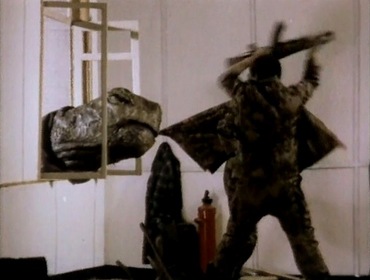
Sergey Kuchkov
Russia, 1993
84 min
Start: 21:59
Exile Exotic
Two decades after the fall of the Iron Curtain, many of the former communist countries are taking architectural measures meant to erase the communist experience and drag them closer to an idealized inter-war past. At the same time, the “West” is witnessing a growing nostalgia for an utopian “Eastern” past that never existed. This manifests itself as a new demand for ruin porn: abandoned buildings, derelict infrastructures and abandoned ambitions.
At a spectrum opposite to ruin porn, but within the same vein, are the replicas of historic buildings. The retro-futurist ruins and the bold new retrograde Disneylands go hand in hand. Both devoid of the past meaning, they turn symbols into accessories for consumer experience. “Exile Exotic” revolves around such a building; namely Antalya, a hotel that represents an apolitical, decontextualized replica of the Kremlin. This is the pretext for a series of reflections about the historical symbols’ trajectory outside of history, the politics of borders as well as the role of architecture, place and identity in configuring the idea of motherland.
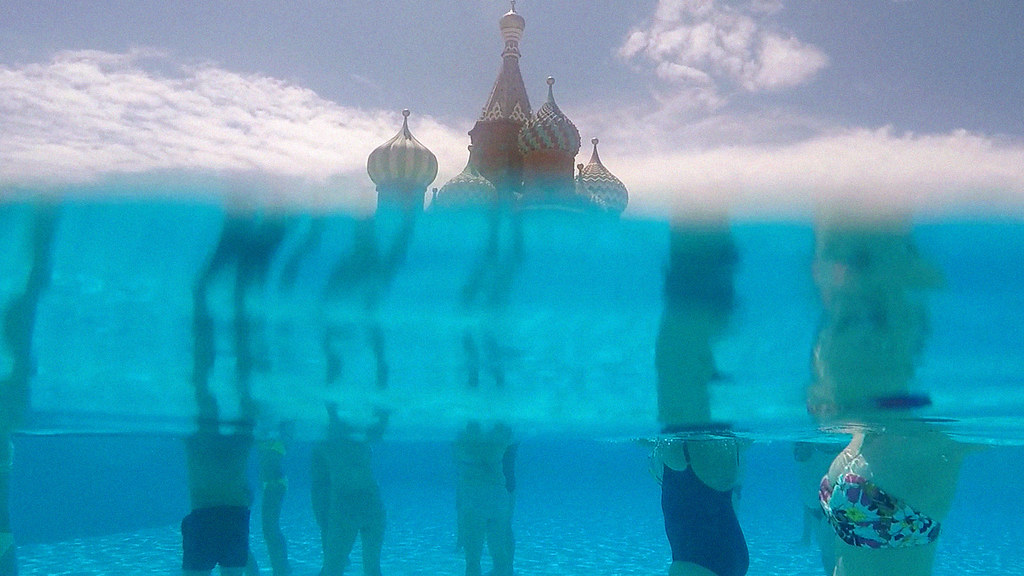
Director Sasha Litvintseva
UK, Russia, 2015
14 min
Start: 23:23
Tony Erdmann
The picture of the German woman Maren Ade Tony Erdmann is a sensation of European cinema in 2016 and an Oscar nominee. Former music teacher, merry fellow and inventor Winfred decides to establish a relationship with his daughter, a successful business consultant of one of the most prestigious corporations. To grab her attention, he masquerades as the eccentric businessman Tony Erdmann. With his hilarious and shocking antics, he hopes to change her view of life and win a place in her heart. But this is just a plot.
In fact, Tony Erdmann is a picture of our subordination to social rituals that protect us from the aggression of the outside world, but do not allow us to feel free at least sometimes. Moreover, happy. Seriously, Tony Erdmann is a film about the fear of death and overcoming it. Bucharest as a place of action was not chosen by chance either. Maren Ade, not in the first film, explores the national character of the modern German, placing him in an alien environment.
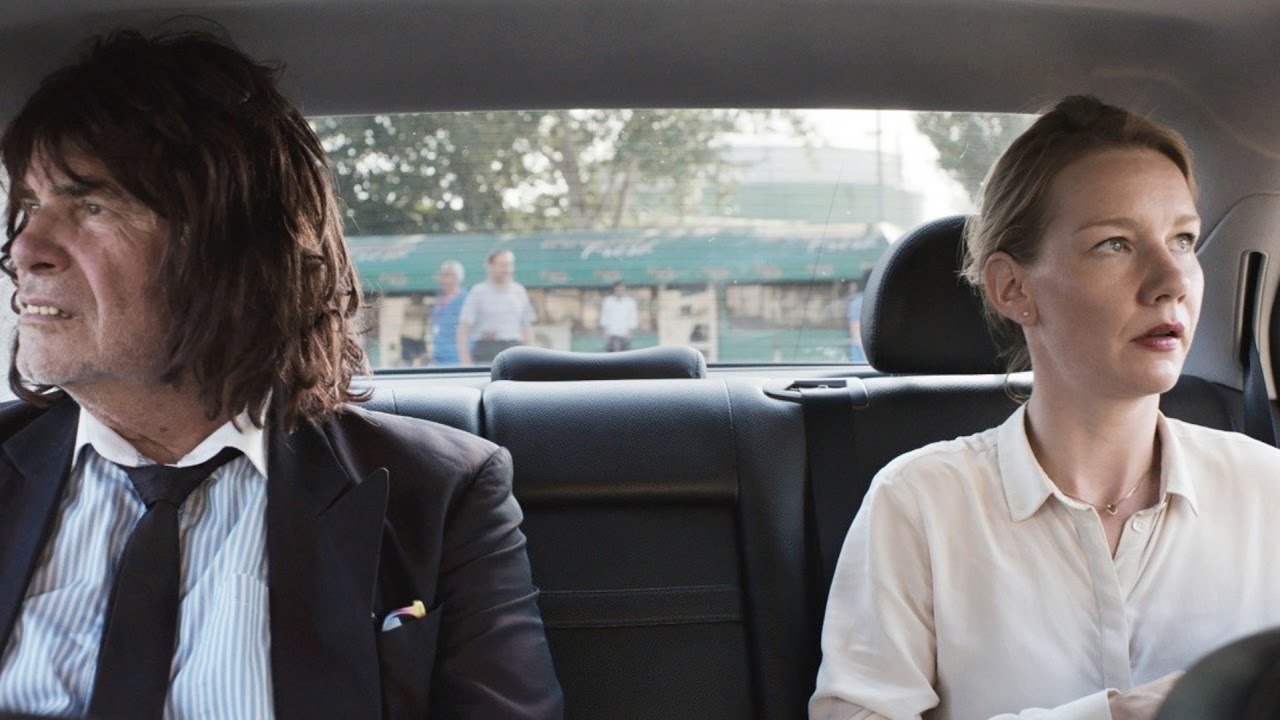
Director Maren Ade
Germany, Austria, 2016
162 min
Start: 23:37
The Whole Shebang
Black and white evokes nostalgia for the Great Depression. Things were so cheap, including lives. We see daredevils (desperate people) compete for money prizes. Baby prepares for World War II. The Whole Shebang continues his series of Eternalisms: indefinitely moving screen-images that not only appear in three-dimensional depth on 2D monitors but are also available to even a single eye – no glasses needed.
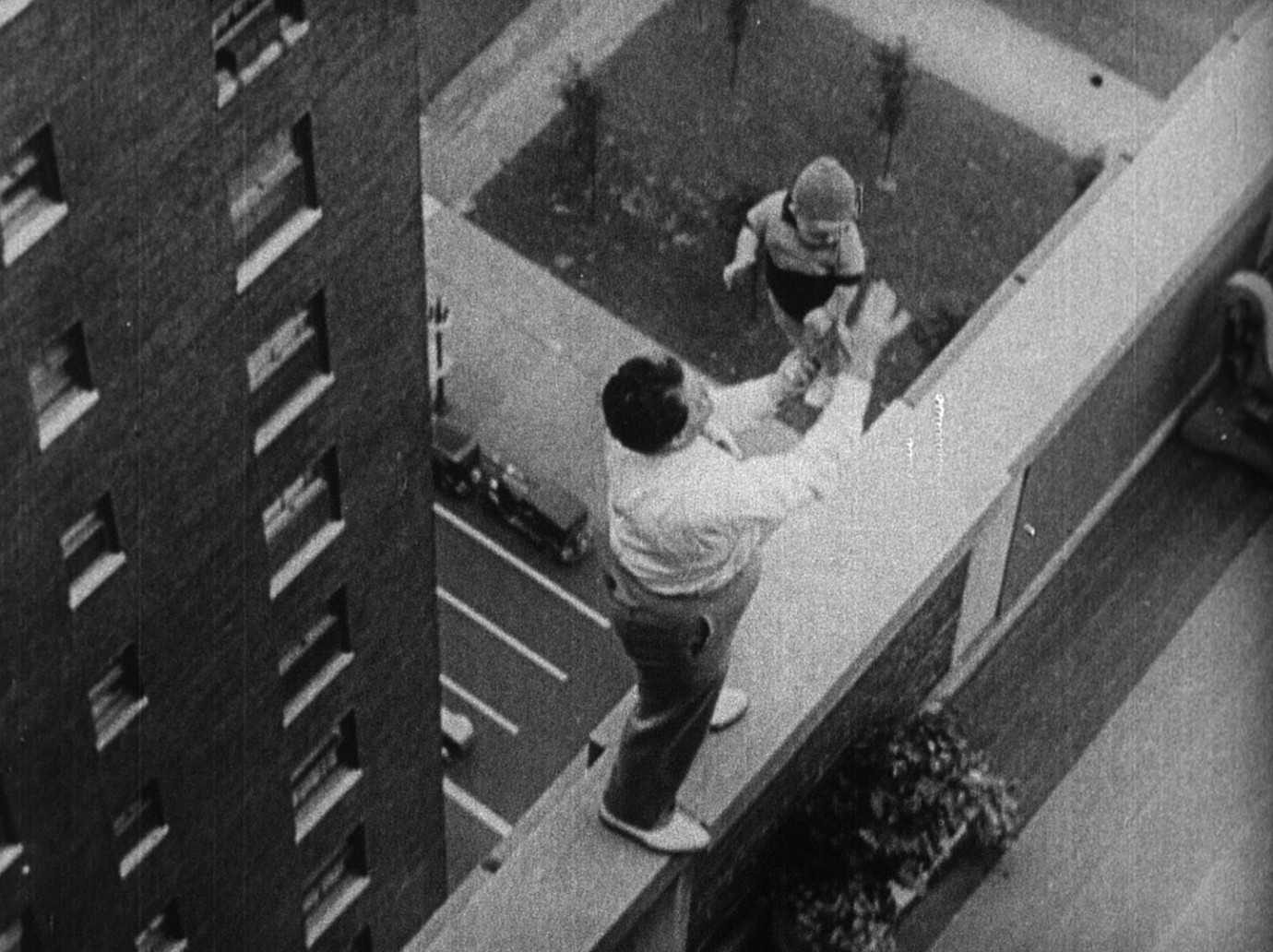
Director Ken Jacobs
USA, 2019
6 min
Start: 2:19
Malmkrog
Malmkrog by Romanian director Cristi Puiu, screened at the 70th Berlin International Film Festival, is based on the philosophical prose of Vladimir Soloviov, its characters talk to each other about evil, progress and death. During the conversation, the tension builds to such an extent that the viewer involuntarily thinks about the day of judgement. At the center of this and previous Puiu films is one theme: death. The dying themselves prepare for it, the murderers carry it to others, and the others mourn and discuss it. The author does not recognize anything more important in the universe than death hanging with the sword of Damocles over humanity. And in this he agrees with Soloviev.

Director Cristi Puiu
Romania, Serbia, Switzerland, Sweden, Bosnia and Herzegovina, North Macedonia, 2020
201 min
Start: 2:24
Erwin
Erwin has everything he needs in his caravan: Internet, bed, refrigerator, coffee machine. However, he rarely stays in the house next door, which also belongs to him. Filmmaker Jan Soldat comes to visit him. And learns not only of Erwin’s sexual preferences, but also of his two great loved ones, the relationship with his parents, his fears. As in many of Soldat’s earlier works, the topic of sexuality in “Erwin” enables an immediate narrative addition. An intimate conversation in a confined space, undisguised and literally naked.
Jan Soldat was born in Karl-Marx-Stadt (now Chemnitz) in the former GDR. From August 2006 to February 2007 together with Frank Schubert he made his first films as part of the SAEK (Saxon training and testing channel). At the same time, he worked as a 1-euro jobber within the Chemnitzer Kunstfabrik. There, too, filmic work was produced and he interacted with young and adult people with mental and physical disabilities. Subsequently, until September 2008, he made more films within the Chemnitzer Filmwerkstatt e.V. In terms of content and form the films made between 2006 and 2008 are based on horror and trash films / B-movies. In addition to these fictional works he also made first documentary and essayistic attempts. From October 2008 to March 2014 he studied film and television directing at the University of Film and Television „Konrad Wolf“, Potsdam Babelsberg. His orientation towards the documentary form developed within this course. Content-wise he focused more and more on sexual diversity and its portability.
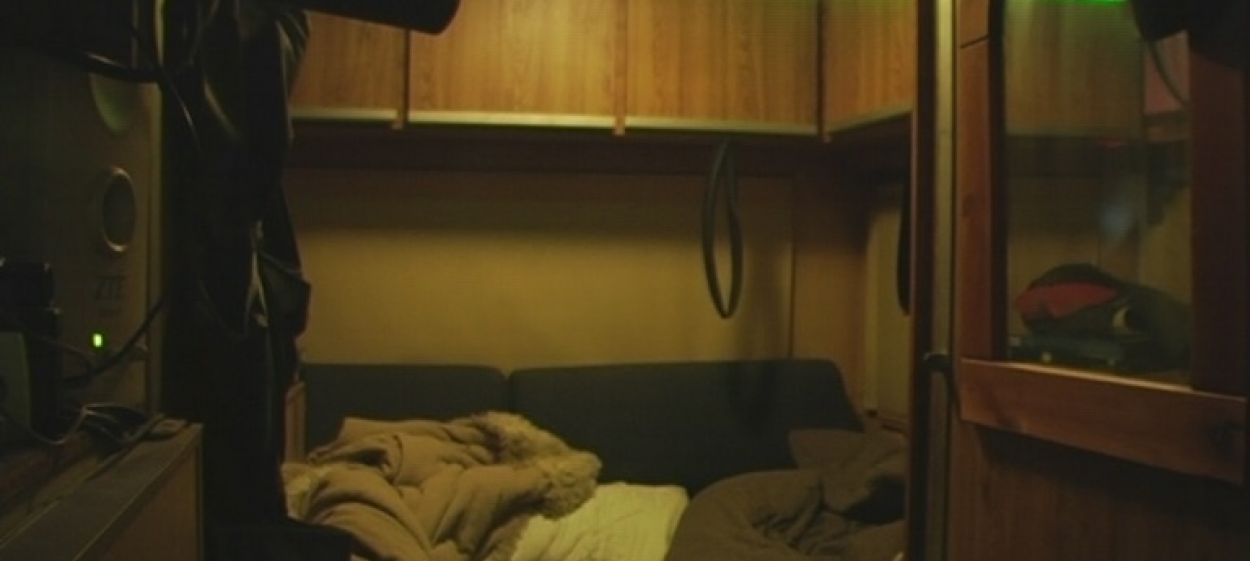
Deirector Jan Soldat
Germany, 2020
16 min
Start: 5:45
Sea Lovers
How do humans approach the ocean? For most of our history, the ocean has been regarded as, if not a barrier, an adversary: something to be simultaneously exploited and feared. And yet the sea has proven impossible to enclose, to own, slipping away from national and personal liability. Ingo Niermann asks us to rethink our response to the fearful oceans, in hope of finding its hidden soul and reaching an understanding with it. In Sea Lovers (2020) Niermann offers us a whole chest of new models for reading, touching and feeling the sea. As the seaside theme parks of the early 20th century offered us a safe encounter with the novel and unsettling technologies of the age, could an underwater amusement park allow us closer interpersonal connection with other lifeforms? And just as the domestication of animals into emotional and affective companions made the forests ‘safe’ for our comprehension, could dolphins or cephalopods become our guides to the watery depths that were once our home?
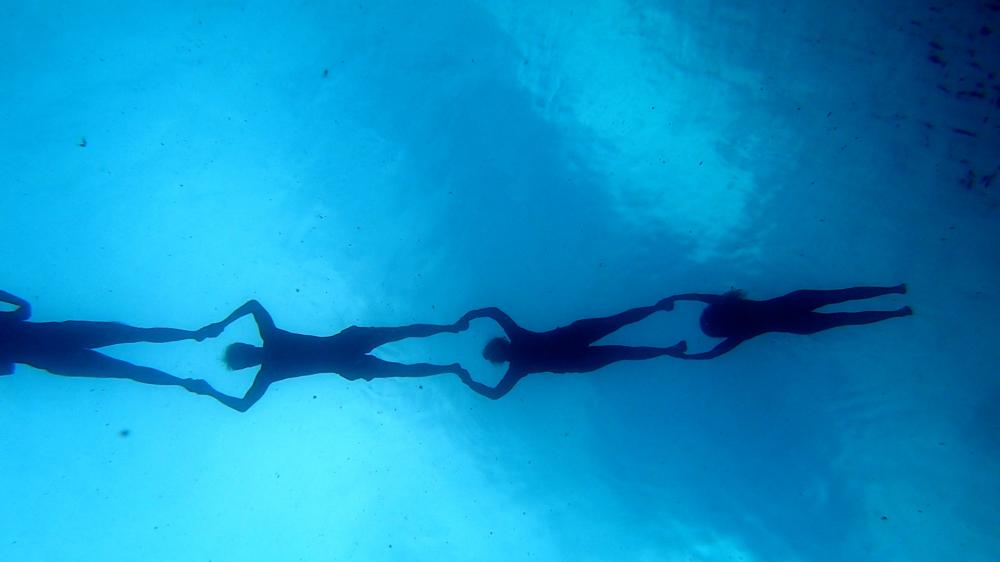
Director Ingo Niermann
Germany, 2019
20 min
Start: 6:01
Bedtime Stories: Bridges
Bed-time stories for children, made 1976/77, in which Farocki uses simple objects to elucidate cinematographic method.
The stories deal with bridges, cable cars and ships crossing roads. What is worth saying? What is worth remembering? The two girls in the film imagine what is shown. Bridges that move. Something quite different to ‘bridges’. Einschlafgeschichten doesn’t really speak of bridges or railroads but rather of two girls filling the space between daytime and dreamtime with a poetic game, an endless game, a game with no end. A game which can fade out without becoming fragmentary. «Are you asleep?», one of them asks at the end of a clip – and the final shot is of the two, asleep; the game is over. The girls are played by Lara and Anna, Farocki’s daughters.
From 1967 onwards, Harun Farocki directed more than 120 films and installations that analysed the powers of the image with an originality, a prescience and a gravitas that renewed itself, year after year, project after project. In his teaching and his essays, in journals and books and exhibitions conceived and produced with Antje Ehmann, Farocki was a powerful critic, editor, theorist and curator in his own right. Generations of artists, theorists and critics have taken Farockis films such as Inextinguishable Fire (1969) and Images of the World and the Inscription of War (1988) and installations such as Deep Play (2007) as reference points. His impact and influence on culture, within and beyond Germany, is undisputed. He was, and remains, a commanding figure of contemporary culture.
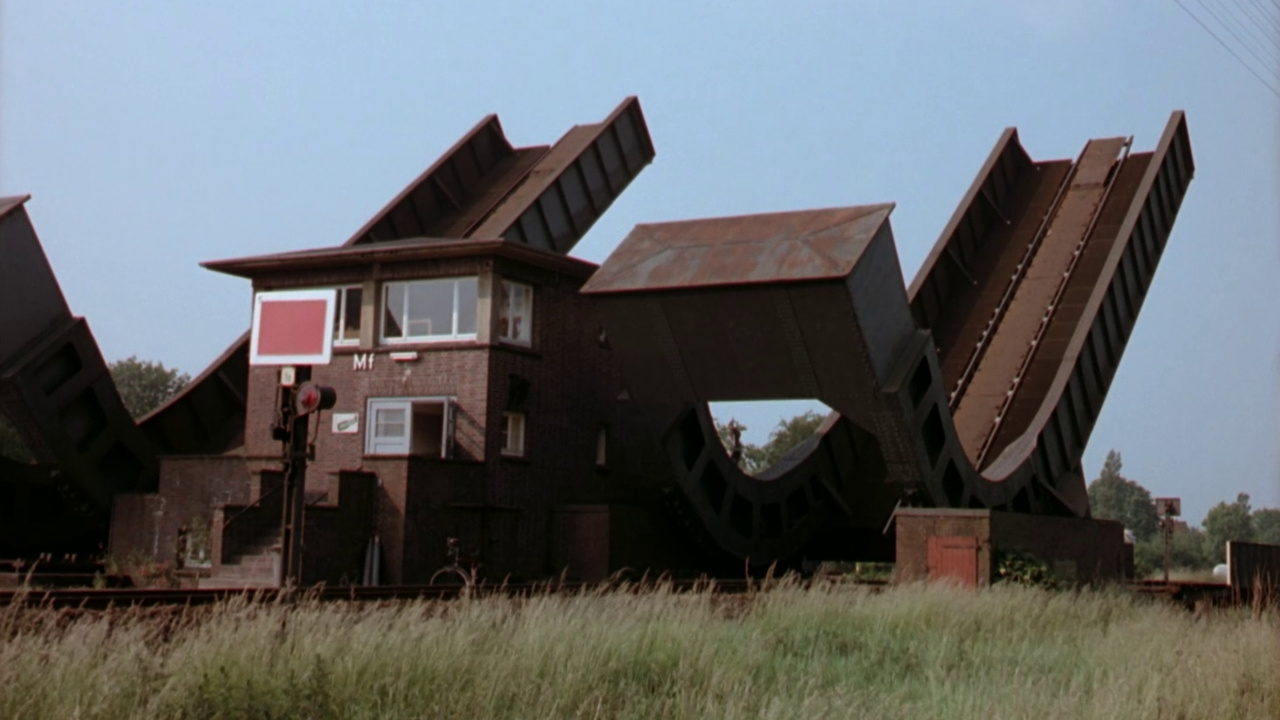
Director Harun Farocki
West Germany, 1977
3 min
Start 6:21
One Hundred Steps
The camera wanders through two stately homes – an aristocratic country estate in Ireland and a grand bourgeois mansion in Marseille – both of which are now open to the public as museums. Little by little, visitors reveal themselves to be performers. Their music acts as ephemeral occupations of these loaded settings, denying a simplification of “European” and “Other”, pivoting the power relations of who is doing the telling and who must listen. The film offers a new approach to negotiating the past, the consequences of this past and the present.
Bárbara Wagner (b. 1980, Brazil) and Benjamin de Burca (b. 1975, West Germany) have worked together since 2011 making experimental documentaries. Their music films erase the boundary between imagination and history and focus on how the cultural forms of the past adapt to changing economic conditions. They do not use actors: singers, dancers, and poets always play themselves. Their work has been shown at the 32nd São Paulo Biennial, Skulptur Projekte Münster (2017), the 58th Venice Biennale, Art Gallery of York University (Toronto), and the Berlin International Film Festival (2018, 2019). They live and work in Recife.
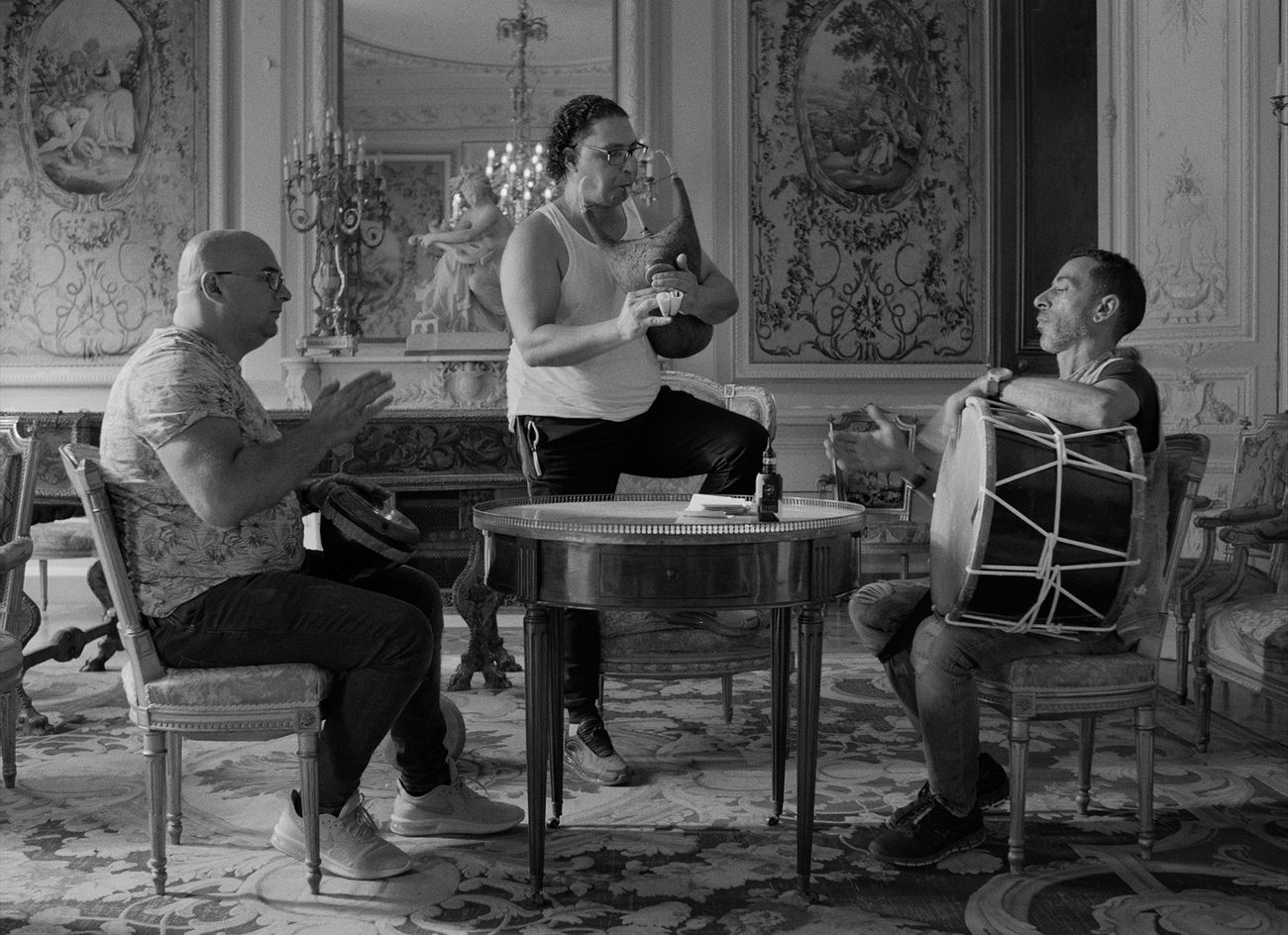
Directors Bárbara Wagner, Benjamin de Burca
with Eabha Bourke, Mona Boutchebak, Malachy Bourke, Bob Quinn, Hakim Hamadouche
Germany, France, 2021
31 min
Start: 6:24
Scorpion gardens
A surrealistic collage, where fragments of Soviet films of the 20-50s, great and passing ones, fiction and newsreels, educational and animated films are assembled by the method of free improvisation. Taken together, these fragments of a bygone era reveal their hidden meaning and ultimately paint her portrait, eccentric and touching, attractive and frightening, poetic and pretentious.
Oleg Kovalov is a Soviet and Russian film critic, film historian, director, screenwriter, actor, teacher. Since 1978 he has been publishing critical and theoretical articles on the nature and problems of cinema in the magazines «Soviet Screen», «Art of Cinema», «Session», etc. Oleg Kovalov’s contribution to cinema is not limited to film studies. Scorpion Gardens (1991) is the director’s debut, an found footage film with the subtitle «Optical Poem» and subsequent films by Kovalov The Island of the Dead (1992) and Concert for the Rat (1995) received many awards and were assessed both by domestic and and foreign filmmakers.
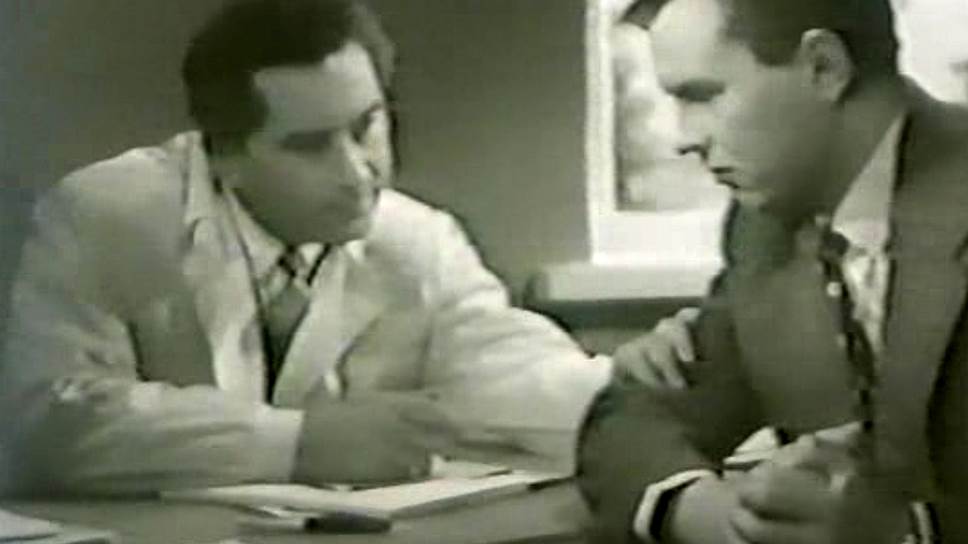
Director Oleg Kovalov
Russia, 1991
96 min
Start: 6:55
Western
A group of German workers goes to a construction site in the border area with Greece and Bulgaria. The picturesque landscapes of a foreign land excite the imagination and awaken the spirit of adventure. But at the same time, many problems arise: the language barrier, the establishment of communication using sign language, cultural differences, the population’s distrust of strangers. The workers will have to try to win the favor of the locals.
Valeska Grisebach studied Philosophy and German Literature in Berlin, Munich and Vienna. In 1993, she started at the film academy in Vienna, where one of her teachers was Michael Haneke. Just like in her previous films, for Western (2017) Grisebach mainly worked with non-professional actors.

Director Valeska Grisebach
Germany, Bulgaria, Austria, 2017
121 min
Start: 8:31
The Promised
The Promised bears witness to the strange indefiniteness of the historical ruins of Fustat in Old Cairo. Unmaintained by government bodies and threatened by the skeletons of new builds, the architectural remains hint at the erosion of collective memory. This film observes the site’s layered functions and the tensions between its value for local residents, looters and government-appointed guards. Unembellished but vast and endlessly enchanting, Ahmed Elgoneimy’s documentary calls into question the possibility of cultural heritage in the presence of political and economic instability.
Ahmed Elghoneimy is a filmmaker and artist currently living between Alexandria and Cairo. His work revolves around interpersonal tensions between the different protagonists presented in his films, such as sons and fathers, victims and perpetrators, bullies and friends. Alternating between fiction and documentary, his films take no heed of a narrative arc culminating in a dramatic climax, but rather follow associations and use moments of collision as an opportunity to investigate notions like victimhood, power, and masculinity.
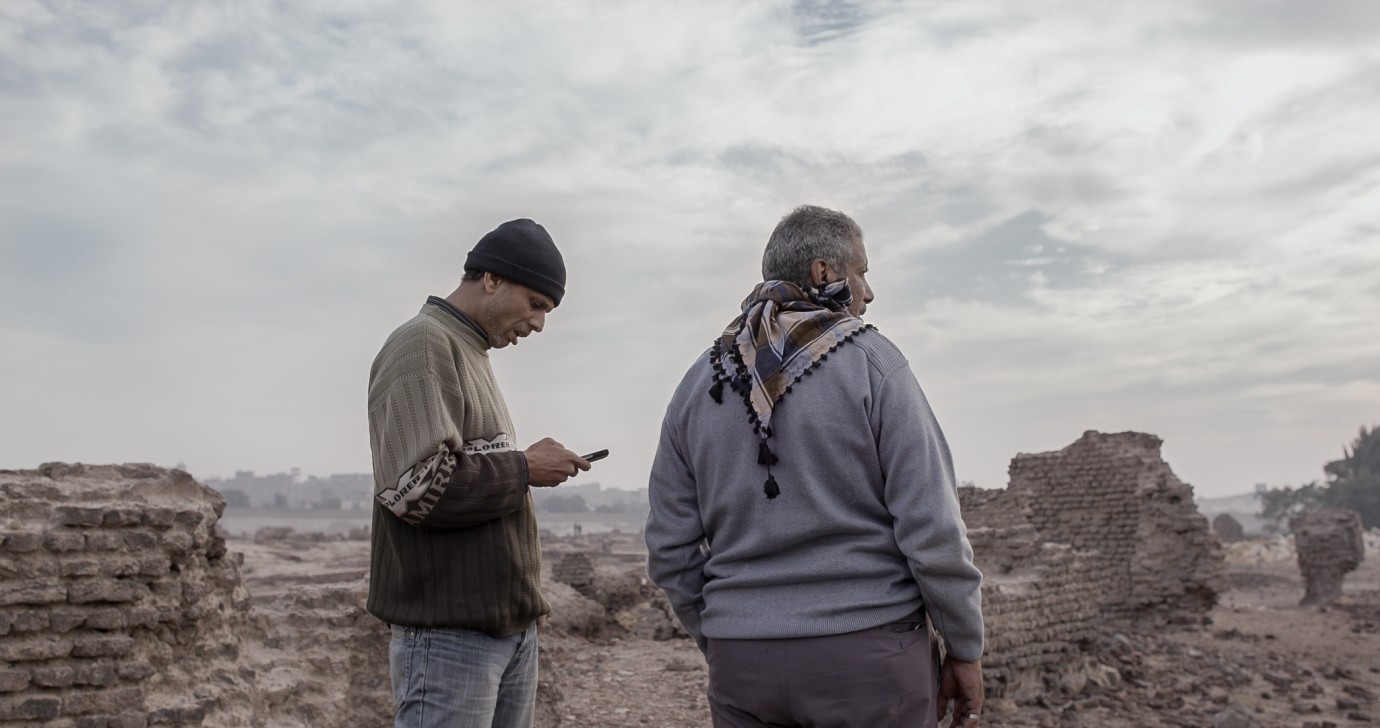
Director Ahmed Elghoneimy
Egypt, 2020
19 min
Start: 10:32
Krasota
The poignant stories of little people who live among the wide fields of Altai and strive to find the meaning of life and beauty even among the oppressive emptiness. The picture is dedicated to a young poet who writes either poetry, or rap, or poetry prose. Thanks to the author of the film, who also creates a poetic work, we really see and feel from what rubbish poetry is born. There is a phrase in the film: “Are you idolized somewhere out there? And we f*** [beat] you somewhere here,» and in general, this is a certain key to understanding the situation.
Kristina Kuzhakhmetova was born in Kazakhstan and lived in Arkhangelsk. Now he lives in St. Petersburg. Krasota is the director’s diploma film.
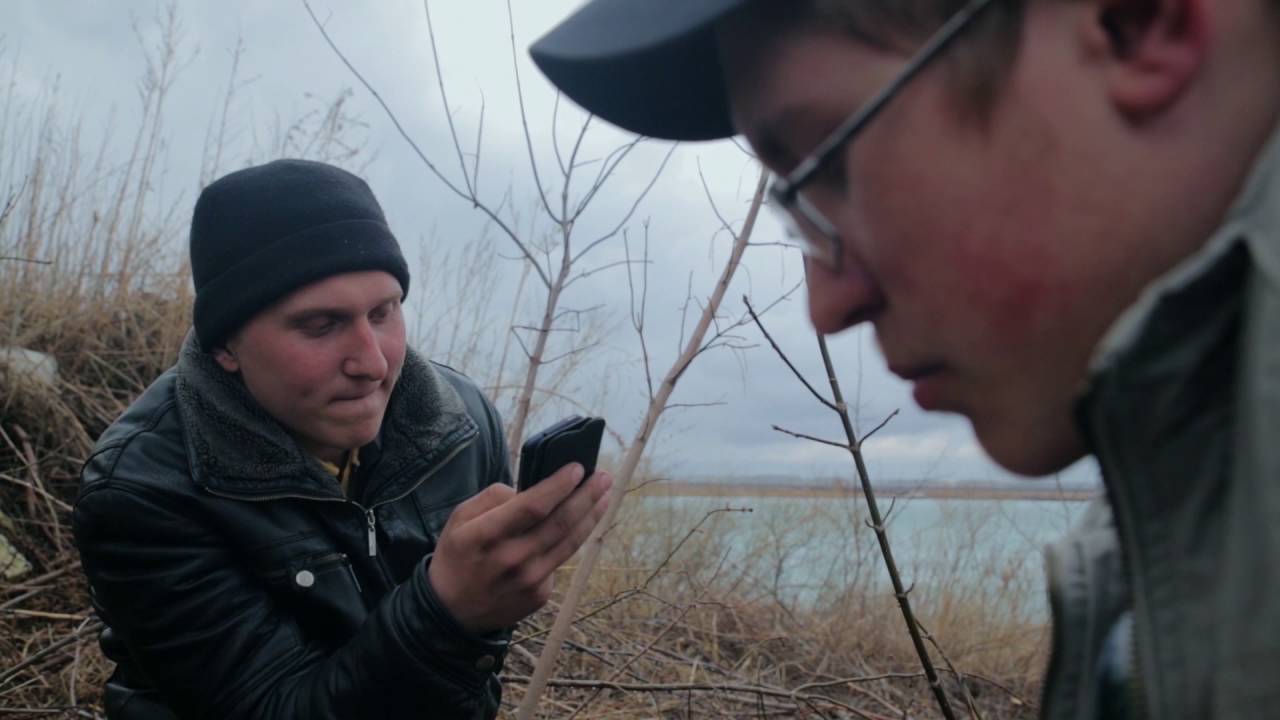
Director Christina Kuzhakhmetova
Russia, 2016
27 min
Start: 10:50
Autotrofia
Shot in the village of Oliveto Lucano in the south of Italy, Autotrofia is simultaneously a documentation of a very ancient pagan fertility ritual that is still practiced in this region, and scripted fiction, based on writings by the painter Vassily Chekrygin and the scientist Vladimir Vernadsky. The scripted content of the film explores the ecological dimension of Russian Cosmism: a desire to transform and evolve in such a way that humans would not need to kill and consume any other living organism in order to produce the energy necessary for living, and instead learn from green plants how to generate nutrition directly from the sun. This idea, first developed at the turn of the 20th century, is juxtaposed with an older, pagan celebration of King Oak and King Holly: a harvest festival in which two trees that represent summer and winter are joint into one supernaturally tall tree, completing and connecting the seasonal cycle created by the orbit of our planet around the sun.
Anton Vidokle, artist and editor of e-flux journal, engages history and speculative social theories through art. His recent project Immortality for All consists of three short essay films on the mostly-forgotten philosophical and cultural movement of Cosmism, which was informed by Marxist thoughts and Russian Orthodox traditions and proposed a radical vision of the future.

Director Anton Vidokle
Italy, 2020
31 min
Start: 11:17
Donna Haraway: Story Telling for Earthly Survival
In Fabrizio Terranova’s film, Donna Haraway — an original thinker and activist, one of the founders of cyberfeminism and the author of A Cyborg Manifesto, which proposed a number of innovative theories about the existence of scientific knowledge — calls for the abandonment of the idea of human exceptionalism and for a conception of the world as complex web of interconnections between people, animals and machines. Jellyfish can be seen flying around her home while she discusses the stories that are necessary for Earth’s preservation and reads her fantastic tale of the art of survival on a broken planet, and of fusion and care between the species.
Fabrizio Terranova (born in 1971), Brussels-based filmmaker, is also an activist, dramatist and teacher at the ERG (School of Graphic Research), where he launched and co-runs the master’s programme in speculative narration. Terranova also co-founded Dingdingdong, an institute that aims to improve knowledge about Huntington’s disease. He has directed three experimental documentaries, Josée Andrei, An Insane Portrait (2010), Donna Haraway: Story Telling for Earthly Survival (2016) and Absolute Beginners(2020).
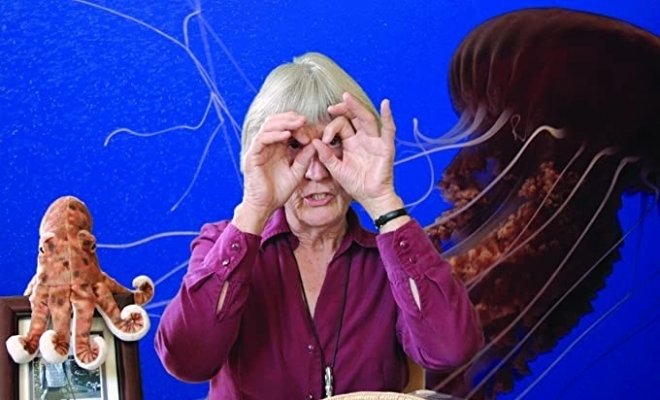
Director Fabrizio Terranova
Belgium, France, Spain, 2016
81 min
Start: 11:48
Contra-Internet: Jubilee 2033
Jubilee 2033, the short film centerpiece, is a re-imagining of scenes from filmmaker Derek Jarman’s 1978 queer punk film Jubilee, starring Susanne Sachsse and Cassils. Jubilee 2033 follows author Ayn Rand (Susanne Sachsse) and members of her Collective, including economist Alan Greenspan, on an acid trip in 1955. Guided by an artificial intelligence named Azuma, they are transported to a dystopian future Silicon Valley. As Apple, Facebook, and Google campuses burn, Azuma reveals that Ayn has become a celebrity philosopher to tech executives, as her writings foster their entrepreneurial spirit. Amidst the wreckage, Rand and The Collective are introduced to the internet, observe techies being captured by anti-campus groupies, and bear witness to the death of Silicon Valley elite. Once inside an occupied office of Palantir Technologies, the group encounters Nootropix (Cassils), a contra-sexual, contra-internet prophet, who lectures on the end of the internet as we know it. Seeking respite, Rand and The Collective find themselves at Silicon Beach, where chunks of polycrystalline silicon mix with sand and ocean.
Zach Blas is an artist, filmmaker, and writer whose practice spans moving image, computation, theory, performance, and science fiction. Blas engages the materiality of digital technologies while also drawing out the philosophies and imaginaries lurking in artificial intelligence, biometric recognition, predictive policing, airport security, the internet, and biological warfare.
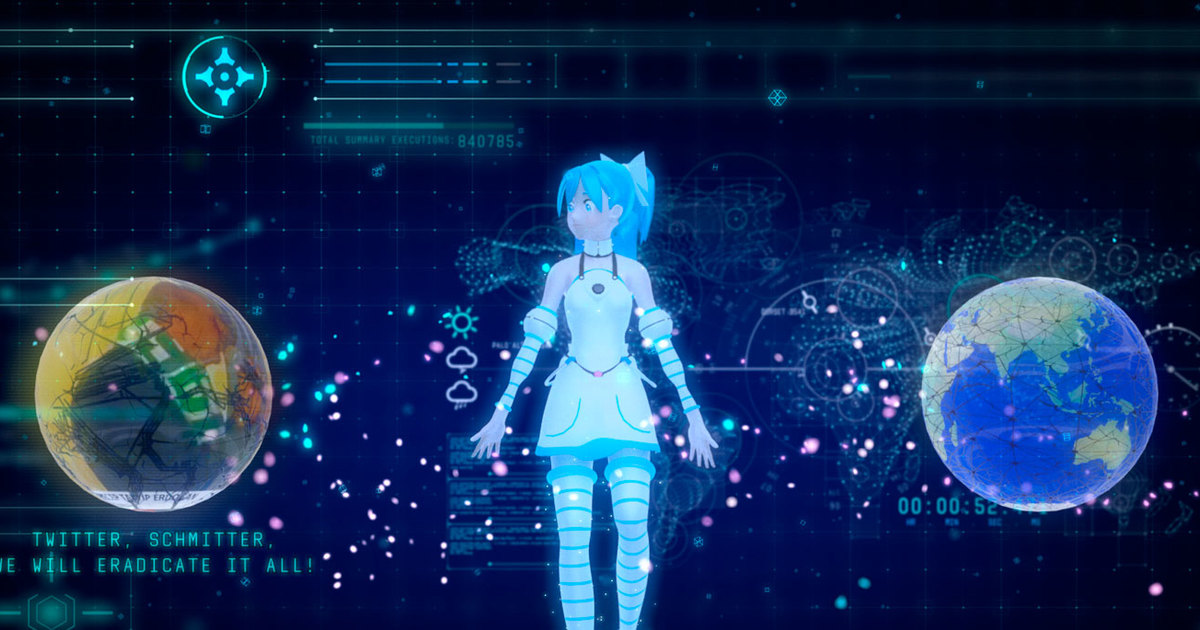
Director Zach Blas
USA, UK, 2017
29 min
Start: 13:09
The Natural Death of a Mouse
Some days she imagines that by her sheer will she can make body parts fall off of people who seem vicious to her. And some other days everyone around her looks beautiful. And when she was little, she wished that flowers would grow out of her footprints.
Katharina Huber in St. Petersburg, Russia. In 2012 attended at the Academy of Media Arts Cologne and in 2014 at the Royal College of Art in London. In 2014 founding member of Studio Huber Casalprim.
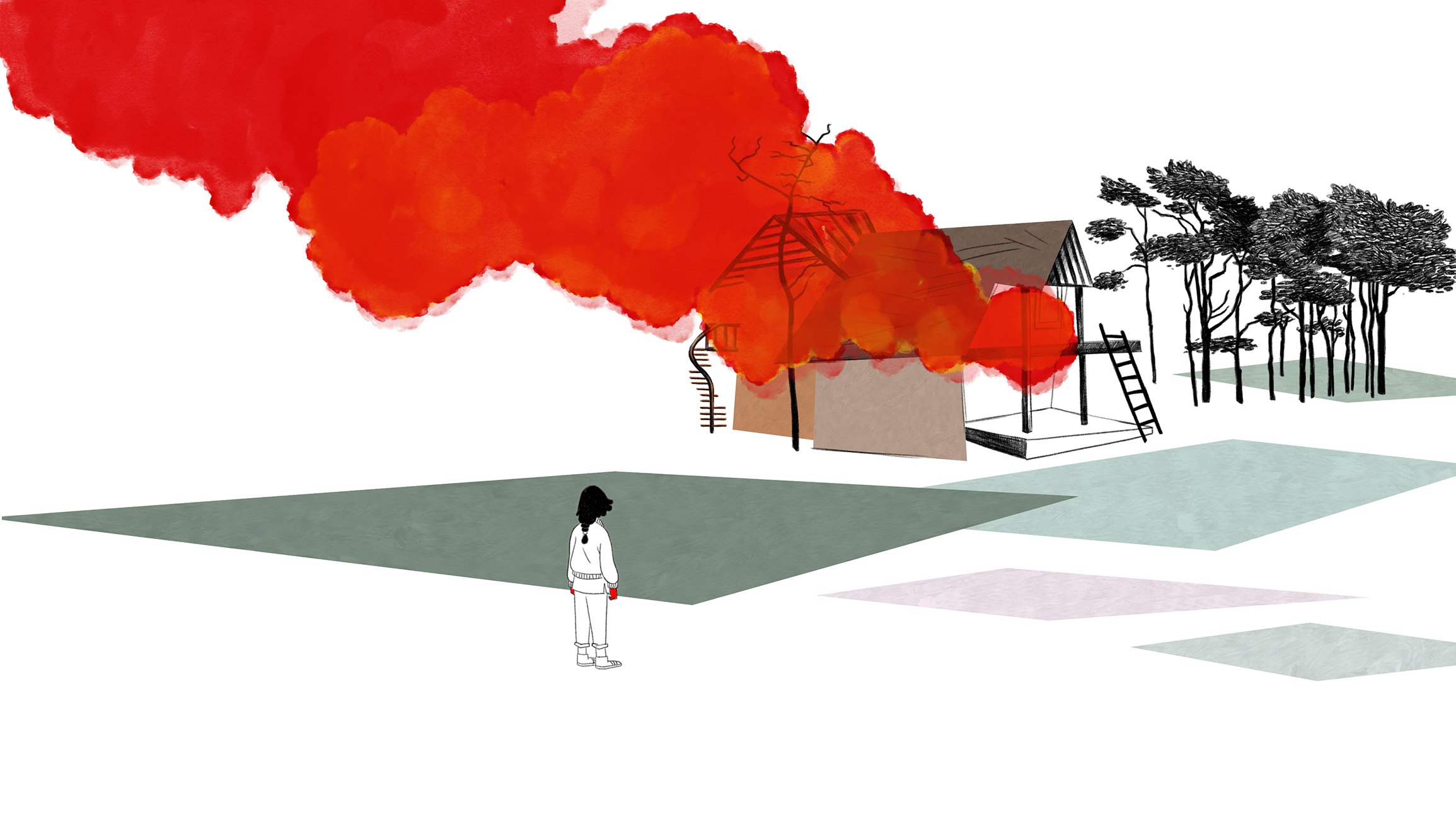
Director Katharina Huber
Germany, 2020
30 min
Старт показа: 13:38
Undine
The main character is a Berlin resident and a guide at the very beginning of the film experiences the betrayal of her beloved. She starts a new relationship, but the girl’s secrets do not disappear anywhere. Berlin at Undine is more than a scene. Descriptions of urban geography and history, scrupulous camera sliding over landscapes and numerous 3D models and layouts of the capital yesterday, today and tomorrow are an important part of the film; in one of the key scenes, Christophe refuses to embrace Undine, asking instead to read him one of her travel lectures.
Christian Petzold was born in Hilden in 1960. After studying German and Drama at the Freie Universität Berlin, he enrolled in Berlin’s German Academy for Film and Television (DFFB). There he studied film direction while at the same time working as an assistant director to Harun Farocki and Hartmut Bitomsky. Christian Petzold completed his studies at the Film Academy with the creation of his diploma film Pilotinnen in 1994, which became his feature-length debut. The film tells about two women with different ideas about life, dreams and goals, who are united by a sobering life experience. Christian Petzold belongs to the first generation of directors of the so-called Berlin School. He, like its other representatives, declared himself in the early 1990s with a special cinematic aesthetics, which is distinguished by the regularity of the narrative, few cut transitions, laconic use of offscreen music and restrained acting in a modest, sometimes stingy setting. The themes of films are often focused on everyday life, and the life of the main characters is shown without embellishment.
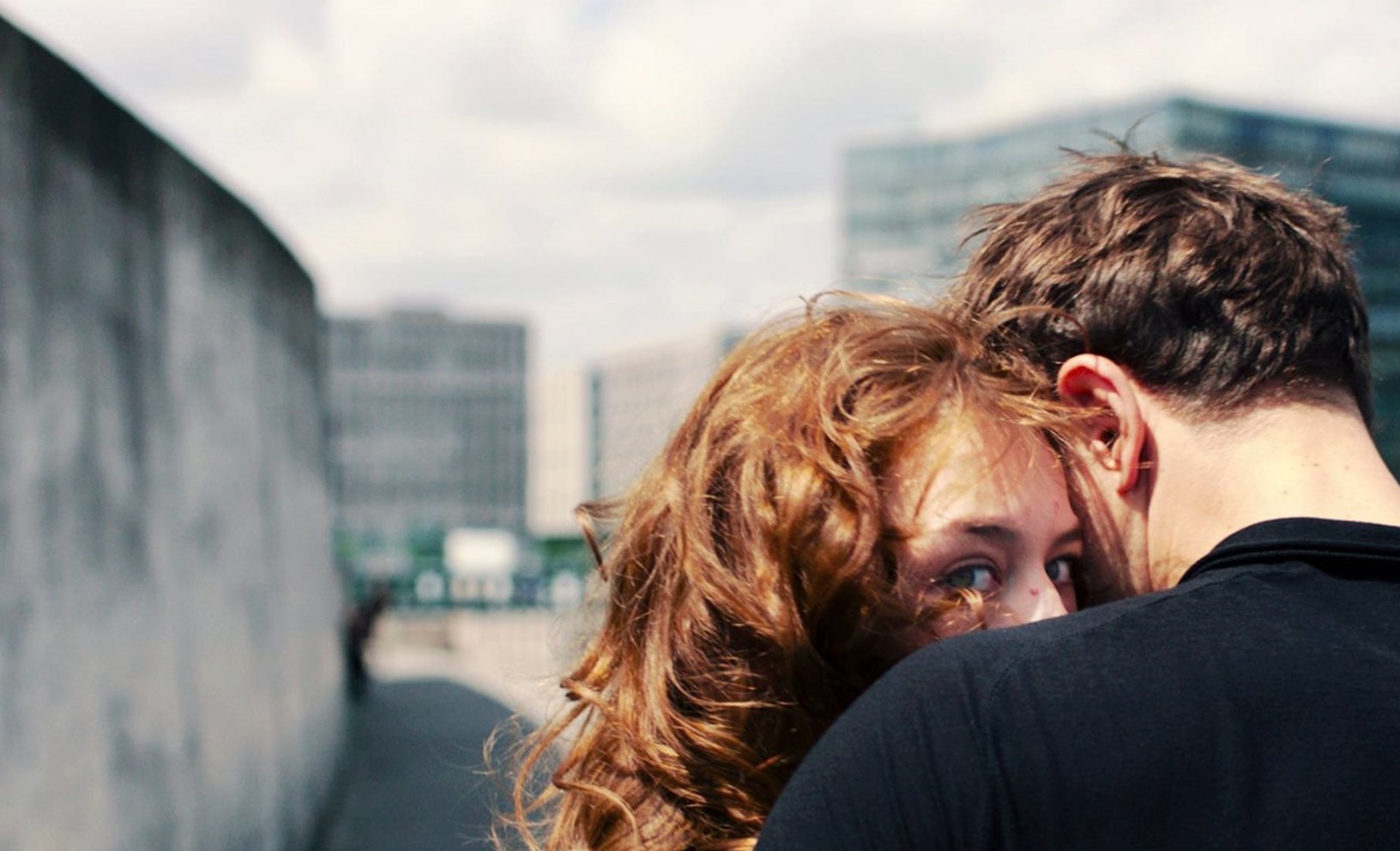
Director Christian Petzold
Germany, 2020
91 min
Start: 14:00
Overdrive
Having started as a festival movies look-thru, the idea of making a video for friends, LUMB group, turned into an exploration of the possibilities of the movavi program and the question of whether a «genuine director» can edit his work using this application.
Overdrive, or the state of overload, is explored in the debut work of the young director Stepan Petrosyan, who uses found footage like an ecologist, believing that the production of new video material should be a necessity, not an attempt of an individualistic desire to express oneself.
Stepan Petrosyan is studying at the Rodchenko School video art workshop (the course of Ulyana Podkorytova), his debut short film will be shown at the festival.
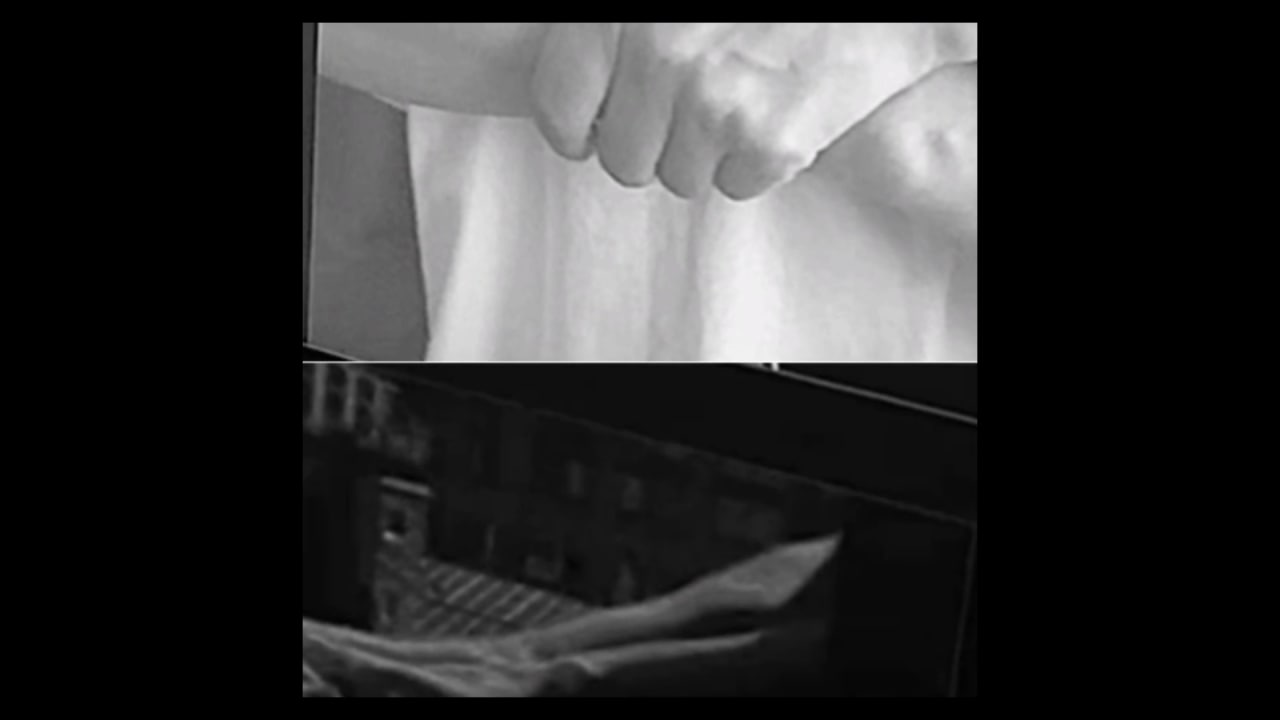
Director Stepan Petrosyan
Russia, 2021
15 min
Start: 15:31
Halpate
Considered a staple of Florida tourism, alligator wrestling has been performed by members of the Seminole Tribe for over a century. As the practice has changed over the years, Halpate profiles the hazards and history of the spectacle through the words of the tribe’s alligator wrestlers themselves and what it has meant to their people’s survival.
Adam Piron (Kiowa/Mohawk) is the Associate Director of Sundance Institute’s Indigenous Program and a member of the Sundance Film Festival’s Short Film Programming Team. He is a filmmaker and co-founder of “Cousin,” a film collective supporting Indigenous artists expanding the form of film. He recently served as the Assistant Curator for Film at the Los Angeles County Museum of Art (LACMA). His short film “Halpate”, co-directed with Adam Khalil, will be screened at Typography CCA.

Directors Adam Piron (Kiowa/Mohawk), Adam Khalil (Ojibway)
USA, 2020
14 min
Start: 15:46
Just a Guy
Just a Guy is an animated documentary short film about love. Three women share glimpses of their affection, attraction and relationship with Richard Ramirez: A serial killer and rapist they contacted after he was convicted in the 80s. Through their perspective, we revisit exchanged letters and emotions that are as obsessive as they are hauntingly familiar.
Shoko Hara was born in Okayama / Japan. In 2012, she obtains her Bachelor of Arts in Media Design at the DHBW Ravensburg. Her graduation film Abita was screened on several festivals around the world. Shoko Hara moves on to study Motion Design at the Filmakademie Baden-Wuerttemberg between 2012 and 2016. Her diploma project, the animated short film What they believe is awarded as the best student film in Animafest Zagreb 2016. Shoko Hara is currently teaching Motion Graphics at the at the DHBW Ravensburg and works as Freelance Motion Designer and Animation Director for commercials spots and music videos.
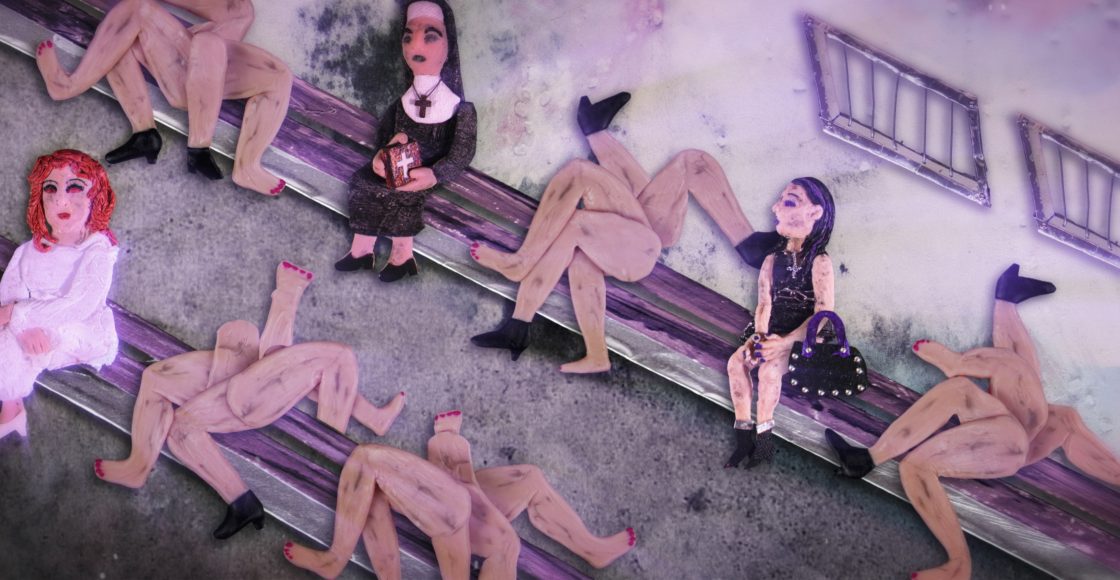
Director Shoko Hara
Germany, 2020
15 min
Start: 16:00
Transnistra
Atmospherically shot on 16mm film, Transnistra is an intimate and vital account of love and friendship in a complex, contradictory world. Award-winning director Anna Eborn (Pine Ridge) intimately follows a group of young people as they move from a sweltering, carefree summer through an unforgiving winter in the self-proclaimed state of Transnistria, where the national flag still holds the hammer and sickle.
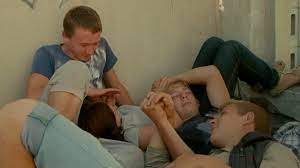
Director Anna Eborn
Sweden, 2019
80 min
Start: 16:15
Batagur Baska
Digital rituals in the analogue cloud. They gather here every day. They come from far and without purpose. They don’t know each other and they won’t come to know each other. They carry their gadgets to optimize the experience. They engage with the world through a small frame. They believe that this moment will remain unforgotten. Music video for track Batagur Baska by Guido Möbius.
Bernd Lutzeler graduated in 1998 in Visual Communication from Universität der Künste, Berlin, with the experimental video The Suspect Usual. Since then he has been living and working as a film, video and media artist in Berlin and Mumbai. His films have been shown at venues and festivals worldwide including Centre Pompidou, International Film Festival Rotterdam, San Francisco Cinematheque, Views from the Avant-Garde and many more. Bernd is an active member of the artist-run analogue film lab LaborBerlin.

Director Bernd Lützeler
Brazil, Germany, 2016
7 min
Start: 17:55
Touching feeling
Aykan Safoğlu takes his artistic friendship with Nihad Nino Pušija as the point of departure for Touching Feeling. Their friendship began in 2014 in the nGbK, an artists’ association in Berlin, where Pušija has been active since the 1990s as an artist, curator, activist, and photographer. Pušija has been recording the world around him for years with his camera: queer life in Kreuzberg, the life of the Romani in the former Yugoslavia and in German refugee shelters; everyday occurrences, but also scenes of flight and migration. Pušija’s photographs form the basis for the film; mark by mark, Safoğlu uncovers them on the black screen. The scratches on the picture’s surface turn into contours and fragments: prompting Safoğlu’s reflection on his role as observer, the defiant beauty of everyday life, and the terrible rupture that war and destruction left in their trail in the 1990s across the Balkans.
Aykan Safoğlu received his MFA in Photography from the Milton Avery Graduate School of the Arts at Bard College, NY. Safoğlu was an artist-in-residence at institutions such as Akademie Schloss Solitude, Ashkal Alwan, and Rijkakademie van beeldende kunsten between 2014-2018. Recipient of the Grand Prize of the City of Oberhausen at the 59th International Short Film Festival Oberhausen (2013), Safoğlu is currently a PhD-Candidate at the Academy of Fine Arts Vienna.
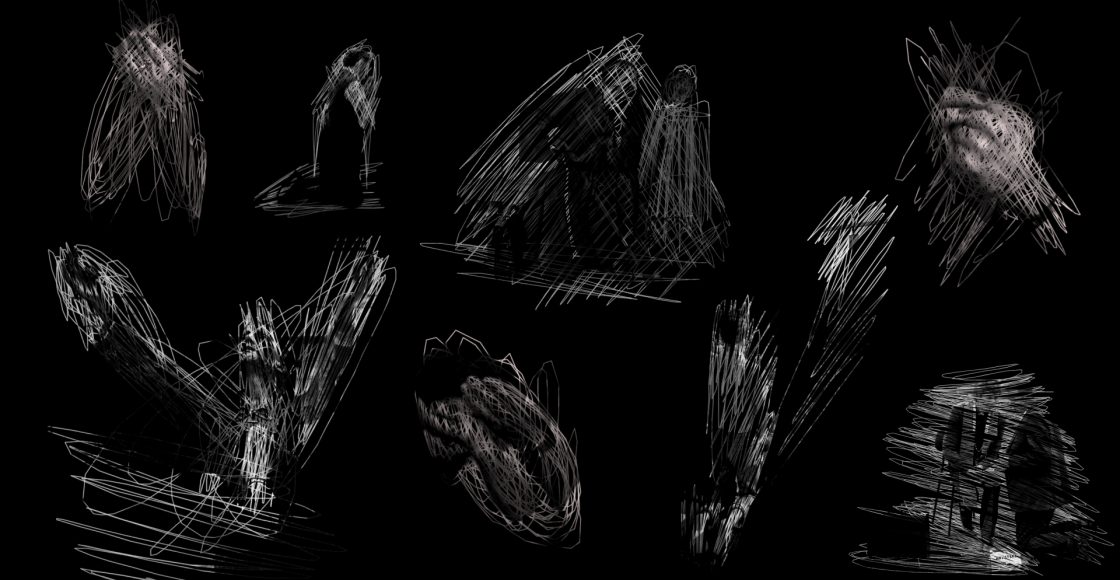
Director Aykan Safoğlu
Germany, 2019
13 min
Start: 18:02
Siberia
Siberia is a new film by the American director Abel Ferrara, which took part in the 2020 main competition of the Berlin Film Festival. According to the director, the picture is inspired by the writings of Carl Jung and black magic. Willem Dafoe, who played the main role, went to psychotherapy sessions for the sake of filming, the script was born from the recordings of these meetings. Siberia, given in the title, is the endless space of the hero’s consciousness. Siberia is not just a designation for something distant, in this concept there is a theme of exile, because people were exiled to Siberia. Such a magical and mystical space hostile to man, where people are sent by force. But what is important, sometimes they return from there.
Born in the Bronx, Ferrara started making amateur films on Super 8 in his teens before making his debut with violent exploitation films such as ‘Driller Killer’ and ‘Ms.45’. Good reviews for the latter helped create his cult reputation, leading to larger budgets, studio funding and ‘name’ actors (Christopher Walken, Harvey Keitel), but he still likes taking his camera out onto the meanest streets of New York, as the ultra-cheap, highly controversial ‘Bad Lieutenant’ demonstrates.
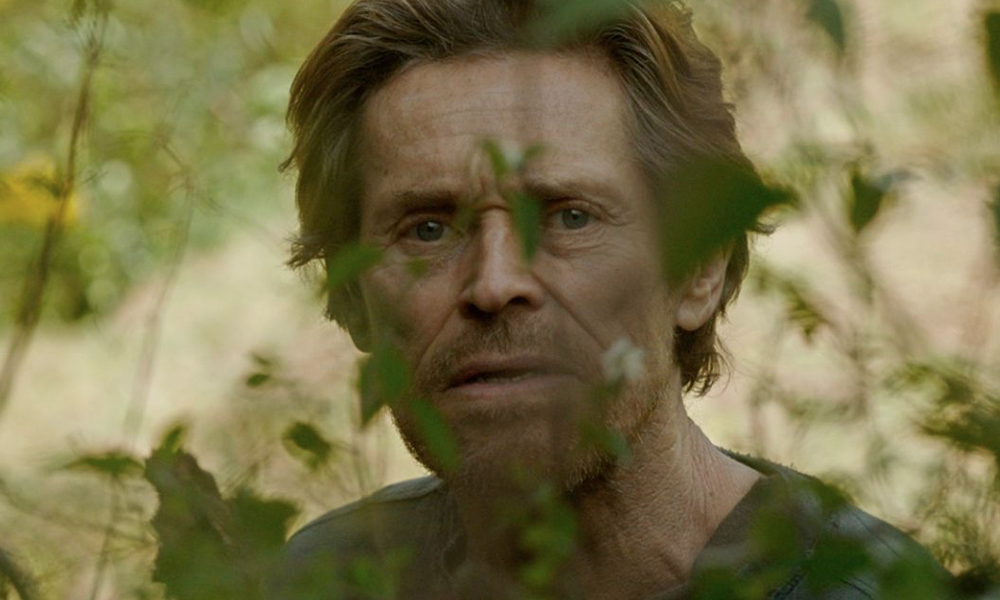
Director Abel Ferrara
Italy, Germany, Greece, Mexico, 2019
92 min
Start: 18:15
FLATNESS SURFACE MUTATION SHIFT: I HAND OUT FLESH TO YOU, YOU WILL MANAGE IT
The film, collected from various views and shrunken feelings, is our common space for collectivity and queer kinship. We are all there, scrambling out of the cinema form and once again slipping away to there. The collage method of gluing us together: a mutating, holding, non-solidifying form of people. We refuse to panic. It is difficult for us to maintain a critical distance from the intimate, extracted, and repackaged in relation to other material. Film as a message, film as a community, film as a form of interaction at a distance. We are led by Zhuzha, devices, and touch, which we were so lacking in quarantine.
A queer-feminist affinity art group “Unwanted Organisation” is a grassroots initiative founded by a group of artists, activists, and feminist social researchers from St. Petersburg, Russia, at the end of 2015. Their main goal is to promote queer-feminist agenda, and support Russian artists and activists, who share our views and approaches, through developing, organizing and leading art-projects and educational programs. Regardless of Russian conservative internal politics and dismantle of social solidarity, we want to demonstrate the possibility for self-organization, self-sustainability and horizontal organization of cultural and art productions.

Directors Queer-feminist affinity art group “Unwanted Organisation”
Russia / Austria, 2020
23 min
Start: 19:47
Club Zodiac
Following the director’s debut short A Wider Screen, this film continues the exploration into virtual embodiment presenting an electric and heartfelt portrait of exotic dance club, Club Zodiac. Alongside the bustling scenes inside VR dance clubs, this film hears from users learning fitness pole dance using full body tracking technology. Club Zodiac was shown at London Short Film festival 2021.
Joe Hunting is an independent filmmaker focused on directing works inside Virtual Reality (VR) app VRChat, with interests in virtual production and immersive VR / AR storytelling. Most known for his award winning short film A Wider Screen, he explores documentary storytelling inside virtual reality app VRChat sharing the whimsical and intimate human connections possible with growing VR technology.
